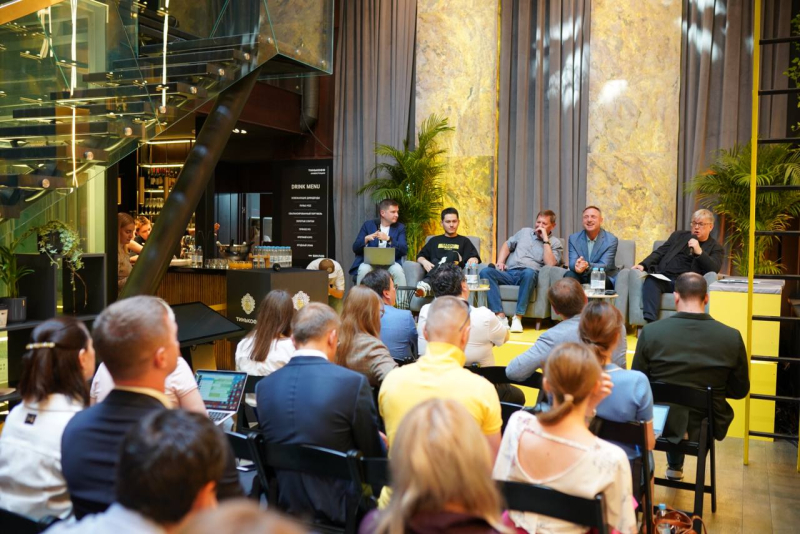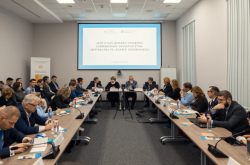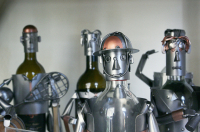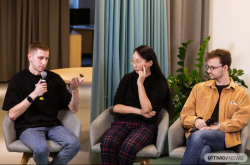In March of this year, OpenAI unveiled the GPT-4 model, prompting frantic discussion not only in IT, but in all industries that rely on intellectual labor. For months now, arguments have continued on which professions are in danger of being replaced by AI and what will happen to education now that it takes 15 minutes to generate a thesis. So, what do the key figures of Russian higher education believe?
The emergence of ChatGPT heralds the end of such positions as corporate lawyers and low-level economists and technologists, believes Yaroslav Kuzminov, the former rector of the Higher School of Economics (HSE) and one of its founders. According to Dr. Kuzminov, AI will replace professions that involve monotonous work – as well as those that revolve around repetitive creative tasks.
“Who will be left? The creative types. AI can compile things that have already been made, but it can’t come up with original ideas on its own,” he explained.
Educational trends
According to the HSE founder, higher education can expect major changes – but not only because of artificial intelligence.
“One of today’s key trends is that higher education is becoming accessible to the masses, not just the straight-A students. Some 30 or 40 years ago, only 10-12% of all school graduates went to universities. And this is the true challenge for education: we must learn to teach more than just the intellectual elites,” stated Yaroslav Kuzminov.
Secondly, online courses are quickly gaining popularity. Students can now attend lectures by the best teachers from anywhere in the world.
The third key trend is the digitization of the learning process. Potentially, this not only provides a much-needed higher degree of control but also – and this is important – boosts direct feedback from students. This will allow universities to fine-tune the educational structure on the fly and, therefore, increase the percentage of students who make it to graduation.
So, how can generative networks be used for the good of education? Today, the amount of accumulated knowledge is such that the human brain cannot process it entirely, or simply needs too much time to do that. Here, AI could become a personal assistant, helping students analyze and process massive amounts of data.
The tech frontier
Artificial intelligence, machine learning, and generative networks can rightfully be said to form one of the key technological frontiers; or, in other words, they are fields of research and development that are growing at a rapid rate – perhaps even quicker than all others, noted Dmitry Livanov, the rector of the Moscow Institute of Physics and Technology (MIPT).
“In order for such a frontier to form, two conditions must be met. On the one hand, you need a lot of demand for its products. On the other, science must have the means to meet that demand. If these two things are true, you get massive development,” he explained.
So, what is the demand for generative network-based products?
In Dr. Livanov’s opinion, the growth of the service industry has formed a need for automation of primitive intellectual labor. On the other hand, the development of computational technology and the ability to quickly process massive amounts of data has given us the capacity to fulfill that need quickly. In essence, a generative network is merely an interface between a human and a large array of information. ChatGPT simply uses context to restore the most likely combination of a certain sequence of words – and no more, which is why we must not ascribe any kind of superpowers to AI.
AI ethics
There are only a handful of companies in Russia working on artificial intelligence – and even fewer such universities, noted Vladimir Vasilyev, the Rector of ITMO University. Today, trends in AI are shaped by corporations, not universities, even though universities possess the scientific and intellectual expertise and must therefore be the trendsetters in the field of AI.
But how does one keep up with and adapt to the changing reality? The answer is to look further and wider and to dare to venture beyond the familiar sphere of knowledge.
“The higher education system is indeed poor at adapting to rapid changes. New knowledge, new ideas, and new technologies are created too quickly. And the technology itself is becoming highly complex and interdisciplinary. For instance, one of the most difficult questions we’ll have to tackle concerns the ethics of AI. Those of us in the technical sciences will have to study philosophy to make the right decision,” asserted Dr. Vasilyev.
According to the Rector of ITMO University, the modern-day higher education system must develop in the direction of personalization. And ITMO is a university that’s already moving on that path. “Our task for the coming years is to provide quality education for the masses that’s based on personalized learning tracks,” emphasized Vladimir Vasilyev.
The St. Petersburg International Economic Forum (SPIEF) is being held in St. Petersburg, Russia, on June 14-17, 2023. More than 17,000 guests from 130 countries are taking part in the event. This year’s forum program includes meetings with representatives of the business communities of China, India, Brazil, Kyrgyzstan, the Latin American nations, and the ASEAN (Association of Southeast Asian Nations) states. SPIEF 2023 will include more than 140 events of various formats, including plenary sessions, panel discussions, roundtables, talks, business breakfasts, debates, and pitch sessions.
ITMO.NEWS editorial team





